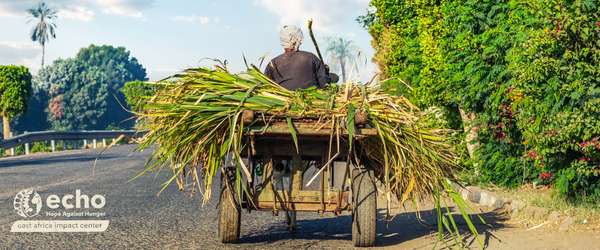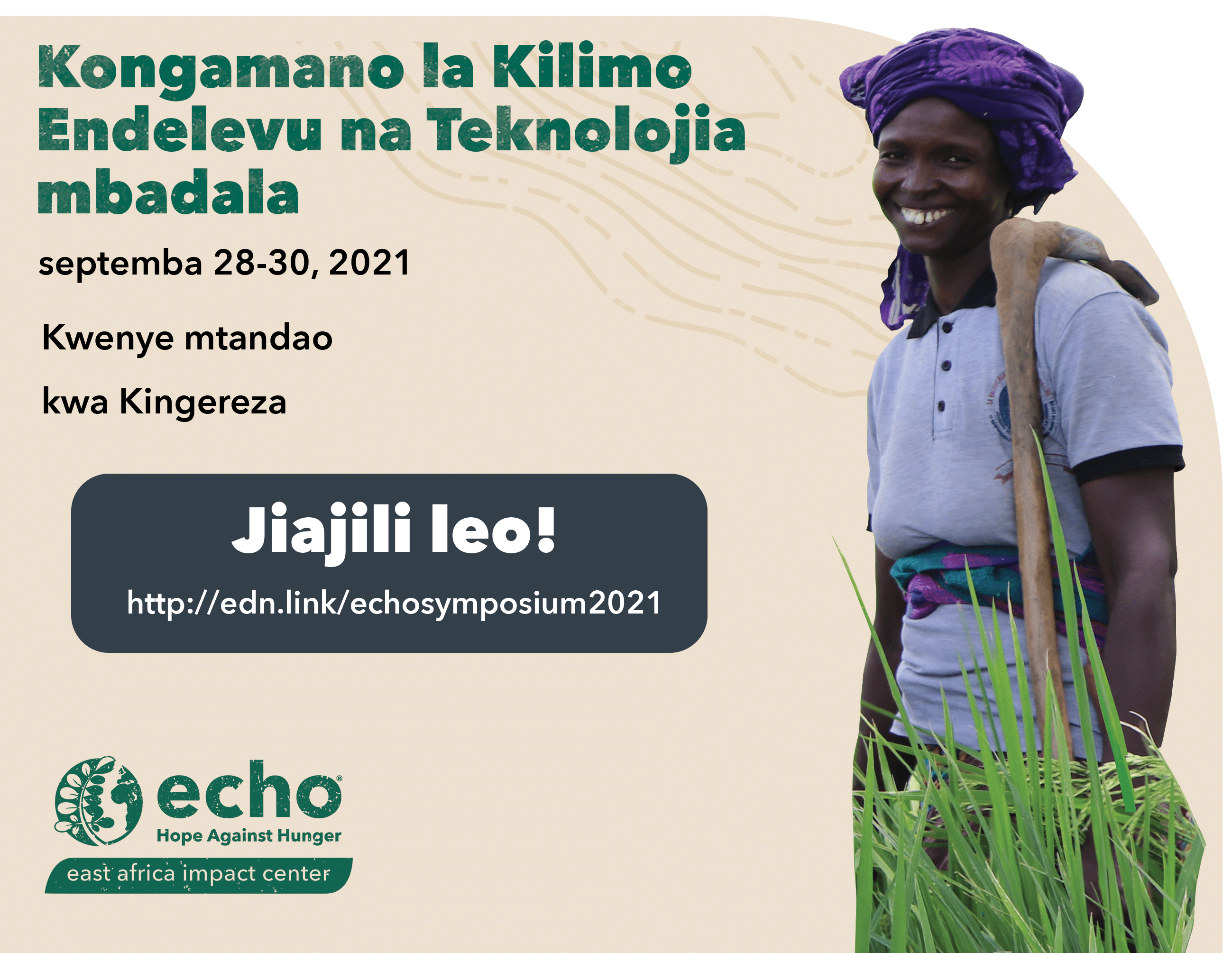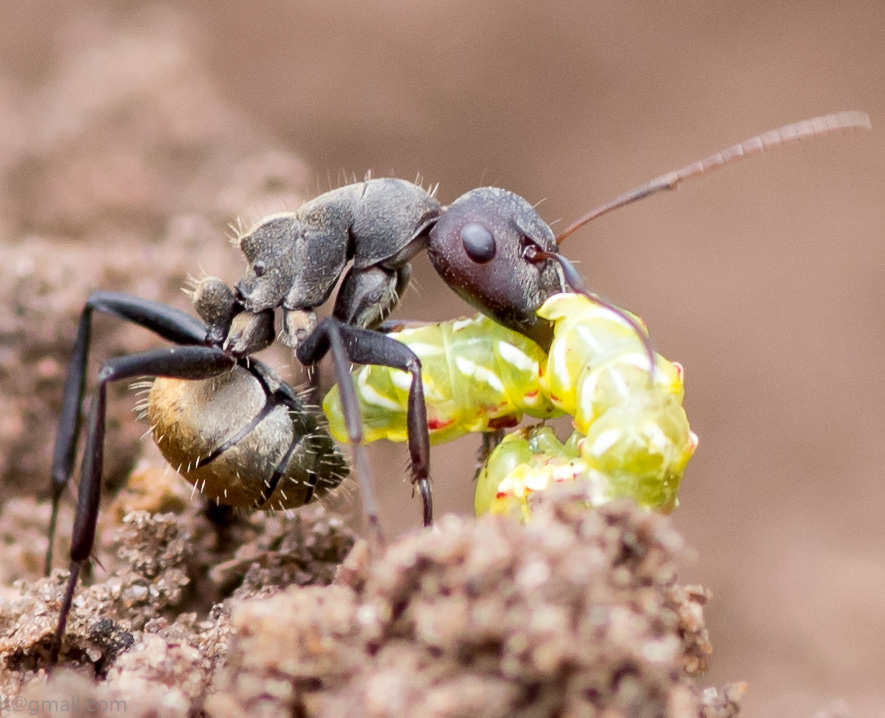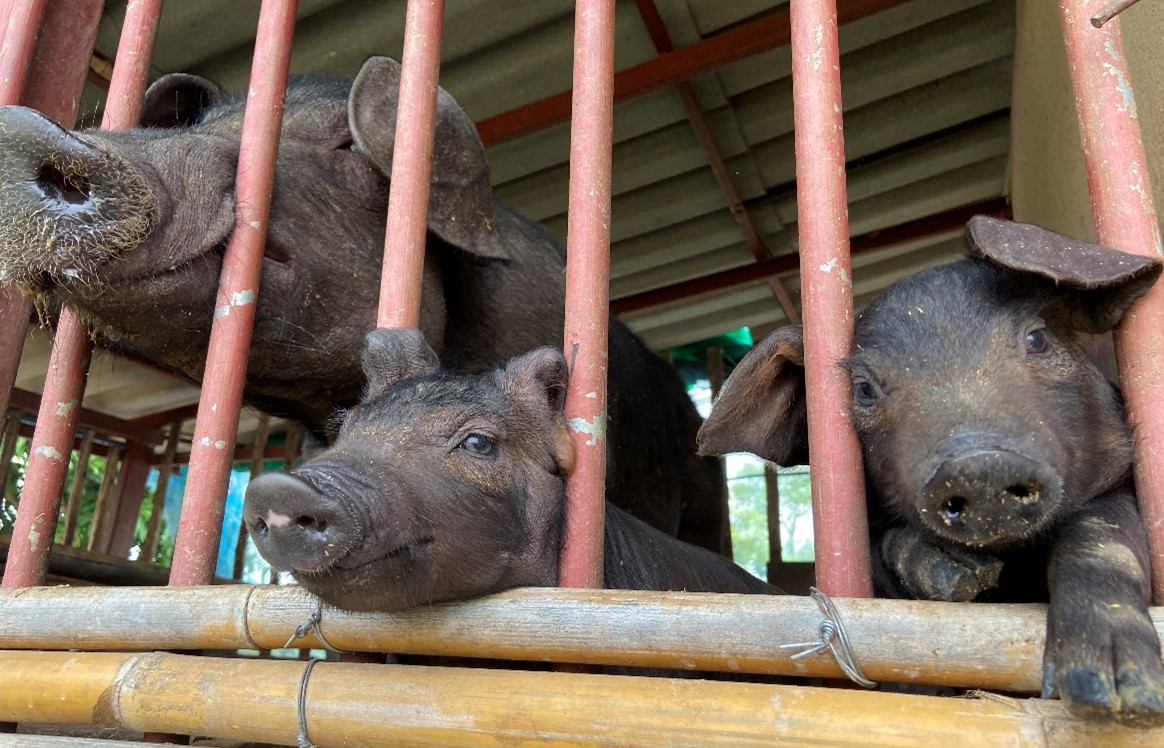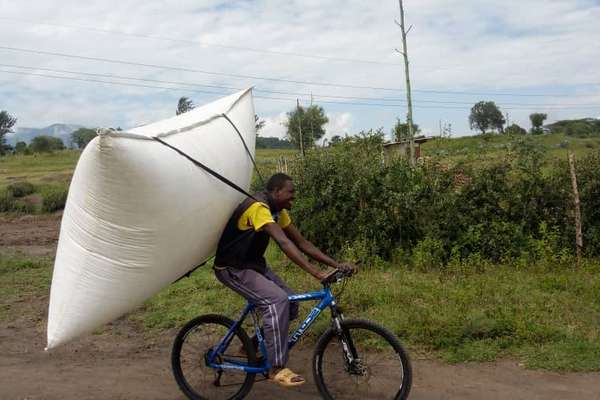Thông Tin Cộng Đồng ECHO
Resource Spotlight: FMNR Introduction Video 2021-11-23
This video from WorldVision Australia demonstrates the value of the Farmer Managed Natural Regeneration (FMNR) system.
"In a balanced ecosystem, people and animals thrive. But when trees are cut down and land is burned, that balance is lost. Deforestation effects include soil erosion and a reduction in biodiversity. Through farmer managed natural regeneration (FMNR), World Vision programs empower farmers to reverse land degradation. The simple act of pruning tree regrowth and managing land sustainably can turn small shrubs and stumps into mature trees, promoting soil restoration and increasing crop yields, firewood and livestock fodder."
ECHO International Agriculture Conference - Last Chance to Register 2021-11-02
Tomorrow, we will be coming together for ECHO's Online International Agriculture Conference! If you have not yet registered for the Online Conference, please do so soon so you can begin to interact with other attendees!
EDN #153 Now Available 2021-10-04
In this issue:
- Moringa Productivity with Legume Intercropping
- Insect Pest Management: Evaluation and Assessment
- Echoes from our Network: Gliricidia-Annual Intercropping System
- From ECHO's Seed Bank: ‘Lacinato’ Kale for Home Gardens
- Books, Websites, and Other Resources: Food Plant Solutions and Downloadable Books
Moringa Productivity with Legume Intercropping
Tim Motis
Excerpt:
People often ask how much leaf powder to expect from their moringa trees. Table 1 shows the sum of our two harvests during each year. During the second year after seeding, with no legumes, the moringa trees produced a total of 76 g/tree of leaf powder, the equivalent of 255 kg/ha. That means that, during a second year after seeding, 1 ha of a moringa planting like ours can produce a year’s worth of leaf powder for 139 people consuming 5 g of powder per day. Witt (2013) provides the nutritional content for 5 g (15 mL or 1 tablespoon by volume) of moringa powder, an amount described as a realistic serving size.
Fill It Full: A Simple Way to Reduce Weevil Damage in Maize Seed Stored in Airtight Containers 2021-09-27
Postharvest losses inflicted by insect pests in stored grains represent major challenge smallholder famers face in the global South. The maize weevil (Sitophilus zeamais) is one of the most important postharvest pests in maize. With dry maize stored in woven polypropylene bags, Likhayo et al. (2018) found that insect pests (maize weevils and another maize pest called the lesser grain borer [Prostephanus truncatus]) reduced grain weight by 36%. Such losses threaten farmers’ food security and overall financial stability.
ECHO East Africa Virtual Symposium 2021-09-14
Jisajili sasa kwa ajili ya Kongamano la ECHO Afrika Mashariki 2021-08-17
Kongamano la Kilimo Endelevu na Teknolojia mbadala
septemba 28-30 2021
Kwenye mtandao
EDN #152 Now Available 2021-07-22
In this issue:
- Insect Pest Management: Options for Controlling Pest Populations
- From ECHO's Seed Bank: Everglades (Wild) Tomato
- Echoes from our Network: Acacia angustissima Farming Improvement Experience
- Books, Websites, and Other Resources: Soy Kit as an Appropriate Technology for Women Entrepreneurs - A Review
Insect Pest Management: Options for Controlling Pest Populations
Stacy Swartz
Excerpt:
Mechanical interventions for pest control are generally categorized as passive or active. Passive options include films, dusts, oils, soaps, and traps. Films such as kaolin clay can deter insects from landing on plants and/or deter feeding behaviors, but such films need to be reapplied as the plant generates new growth. Dusts such as diatomaceous earth can be placed around the base of plants to keep crawling pests from accessing the plant. Dusts can also be placed on the leaves as a feeding deterrent. Oils and soaps that kill pests are physical controls because their effect is short-term, and they act physically on the pest by smothering them or breaking down sensitive exterior tissues. Oils and soaps must contact pests and are most effective against soft-bellied insects such as aphids, mealybugs, whiteflies, spider mites, and scales. Repeated application is often required to control a population because oils and soaps are most effective at controlling young individuals.
EDN #152 Now Available 2021-07-06
In this issue:
- Insect Pest Management: Options for Controlling Pest Populations
- From ECHO's Seed Bank: Everglades (Wild) Tomato
- Echoes from our Network: Acacia angustissima Farming Improvement Experience
- Books, Websites, and Other Resources: Soy Kit as an Appropriate Technology for Women Entrepreneurs - A Review
Insect Pest Management: Options for Controlling Pest Populations
Stacy Swartz
Excerpt:
Mechanical interventions for pest control are generally categorized as passive or active. Passive options include films, dusts, oils, soaps, and traps. Films such as kaolin clay can deter insects from landing on plants and/or deter feeding behaviors, but such films need to be reapplied as the plant generates new growth. Dusts such as diatomaceous earth can be placed around the base of plants to keep crawling pests from accessing the plant. Dusts can also be placed on the leaves as a feeding deterrent. Oils and soaps that kill pests are physical controls because their effect is short-term, and they act physically on the pest by smothering them or breaking down sensitive exterior tissues. Oils and soaps must contact pests and are most effective against soft-bellied insects such as aphids, mealybugs, whiteflies, spider mites, and scales. Repeated application is often required to control a population because oils and soaps are most effective at controlling young individuals.
Asia Note #46 Now Available 2021-06-14
Featured in this AN
-
African Swine Fever Virus: Overview and Prevention on the Small Farm
-
[Editor’s Note: For questions, comments, or personal experience on this topic visit ECHOcommunity Conversations: African Swine Fever Virus]
-
-
[Example] Small Farm Biosecurity Plan for the Prevention of African Swine Fever
-
I Suspect ASFV on my Farm: What Steps Should I Take?
-
ECHOcommunity Conversations: Find Practical Answers from a Global Network of Agriculturalists
East Africa Note 7 Now Available 2021-04-21
In this issue:
- Families Benefited with Dairy Goats Project
- A Research Project: Packed Biogas in Bags
- Green Manure/ Cover Crops: jack bean
Packed Biogas in Bags: a research project
Harold Msanya
Excerpt:
Evelyn Mguo’s family is a consumer of bagged biogas who participated in phase one of the research project –‘Peer to peer’, a business model to test the viability of retailing methane gas in portable bags, from the farm gate of a biogas digester owner for distribution/sale to a neighbor. Evelyn says,
Both charcoal and firewood are difficult to access during the rainy season. I rarely use charcoal and firewood to cook local foods such as Makukuru and Ndizi. I grew up in a family that used firewood as the only source of energy and hence I used to believe that certain local foods taste better if they are cooked using firewood. I have now used the bagged biogas for three weeks and in my opinion it is a good option. I have managed to cook all types of foods that I used to cook using LPG. One (1m³) bag lasts 3 to 4 days and if it can be obtained for Tsh 2,000 per bag, it means I will cut down the cost used for LPG and other sources by almost 50%. My only request is for the project team think about how to package it in larger quantities so that it can last longer for at least seven days or more.
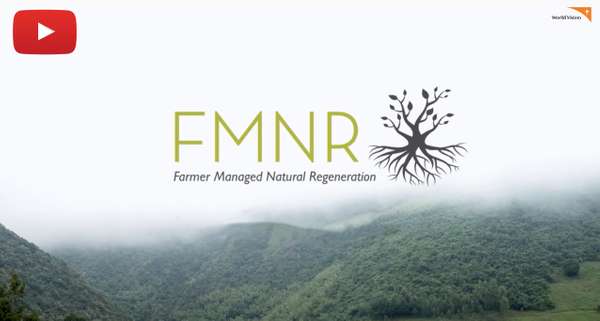
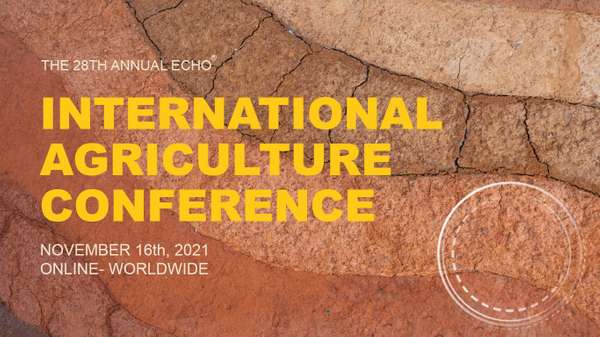
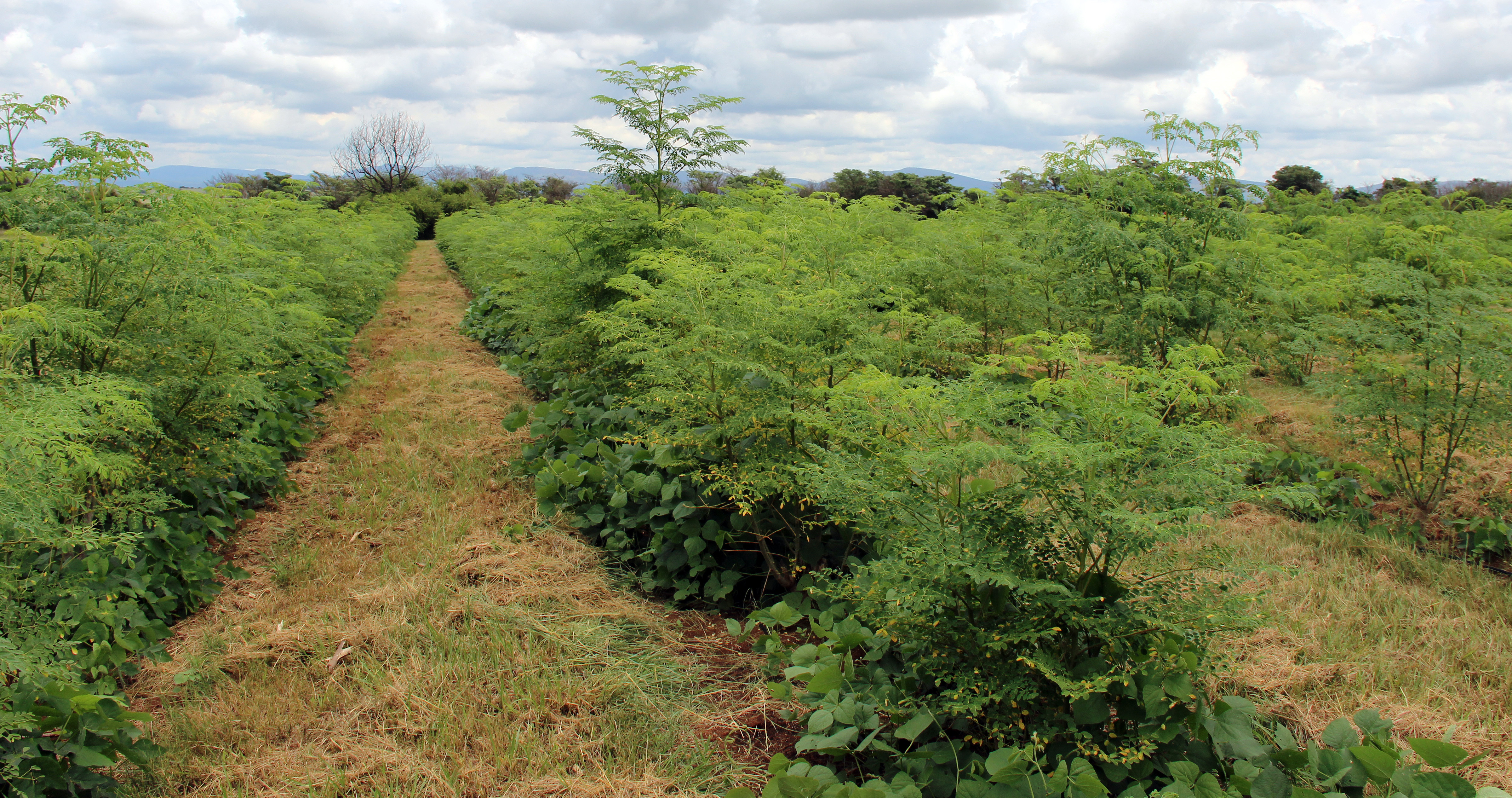
.jpg?original=true)
